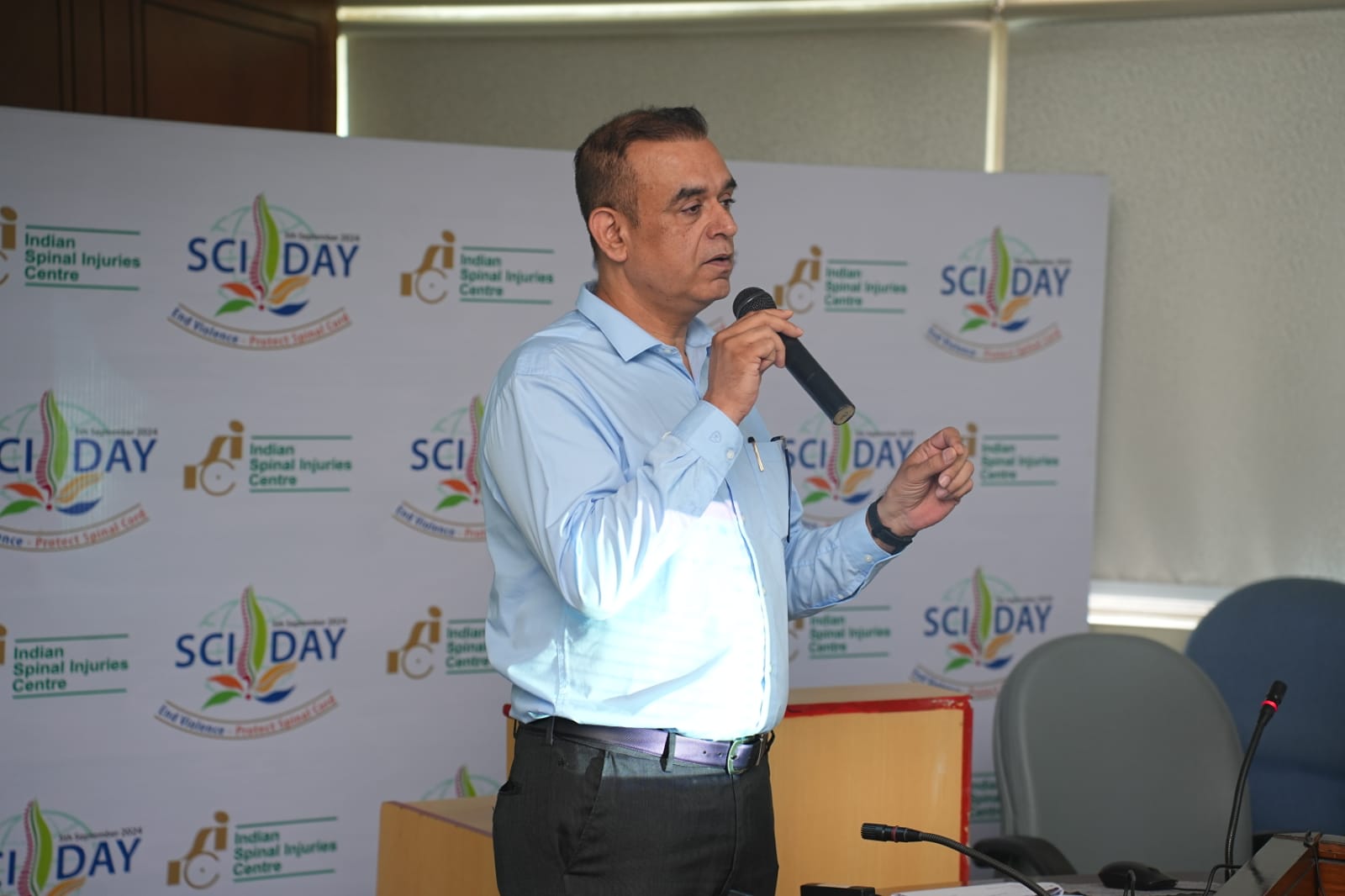
Violence Among Top Causes of Spinal Cord Injuries in India: Experts Urge Holistic Solutions
In a startling revelation, violence has emerged as one of the top three causes of spinal cord injuries (SCI) in India, alongside road traffic accidents (RTAs) and falls from heights. A recent study by the Indian Spinal Injuries Centre (ISIC) highlights the alarming role of violence, such as road rage, domestic disputes, stabbings, and shootings, in contributing to the growing incidence of these life-altering injuries.
Analysing data spanning a decade from 2012 to 2022, the ISIC study found that RTAs were responsible for 44% of SCIs, while falls accounted for 38.3%. Violent incidents, including stabbings and shootings, were identified as significant contributors, underscoring the diverse and often preventable causes of spinal cord damage.
The study's findings echo earlier trends observed between 2002 and 2010, where RTAs and falls similarly dominated as leading causes of SCIs. This continuity points to a critical need for stronger prevention strategies and policies to curb spinal injuries in India. Notably, a comparative analysis with data from the National Spinal Cord Injury Statistical Centre (NSCISC) in Birmingham, UK, found that vehicular accidents accounted for 38.52% of cases there, with violence responsible for 13.55%.
In observance of SCI Day 2024, themed "End Violence - Protect Spinal Cord," ISIC has ramped up its awareness campaigns, focusing on both preventive measures and rehabilitation services for SCI patients.
“Spinal cord injuries are not merely physical impairments; they impact emotional well-being, social life, and the ability to work,” said Dr. Vikas Tandon, Chief of Spine Services at ISIC. He emphasized that RTAs and falls remain the most significant causes of SCIs, but violence also plays a major role. “To tackle this issue, we need a comprehensive, multifaceted approach, involving policy reform, enhanced safety measures, and robust treatment and rehabilitation services.”
Dr. Tandon further stressed ISIC’s commitment to providing holistic care for SCI patients, including those who are victims of violence. “We strive to create a society that values diversity and inclusivity by offering state-of-the-art facilities for all spinal injury patients.”
Rehabilitation is often the key to helping individuals with spinal cord injuries regain functional independence. This intricate process involves physiotherapy, occupational therapy, peer counseling, psychological support, and vocational training. For many patients, such services are essential following surgical stabilization of the spine. However, as Dr. Gaurav Sachdeva, Head of the Rehabilitation Department at ISIC, pointed out, rehabilitation remains inadequately covered by government programs and insurance schemes, leaving many patients financially vulnerable.
“Rehabilitation costs are frequently ignored by both government schemes and insurance providers, even though they are vital for maximizing independence and quality of life for SCI patients,” said Dr. Sachdeva.
ISIC is one of the few facilities offering comprehensive rehabilitation under one roof. With 10 internationally trained spine surgeons and India’s first dedicated neuro-urology department, ISIC provides cutting-edge care for SCI patients, particularly those affected by violence.
The experts at ISIC shared powerful stories of recovery, including that of a 10-year-old boy who sustained a spinal cord injury after being shot while playing outside. After initial first-aid treatment failed to improve his condition, he developed septicemia and a urinary tract infection. A month later, he was admitted to ISIC, where Dr. Neeraj Gupta performed a life-saving surgery to remove the bullet and stabilize his spine. Following extensive rehabilitation, the boy regained mobility and returned to a normal, active life.
In another case, a 30-year-old man, Dr. Tarush Rustagi, jumped from a second-floor building after a domestic dispute, sustaining severe spinal injuries. Completely paralyzed from the waist down, he underwent surgery and comprehensive rehabilitation, including psychological support. He has since made a remarkable recovery.
The study and these poignant cases highlight the pressing need for both physical care and a greater focus on addressing violence—whether direct or psychological—that often leads to such tragic incidents.
With over 1.5 million people in India living with spinal cord injuries and thousands more affected each year, ISIC experts are advocating for a robust support system that includes both advanced surgical interventions and comprehensive rehabilitation programs. As the country grapples with this growing public health crisis, a unified effort is required to reduce violence and protect spinal health.